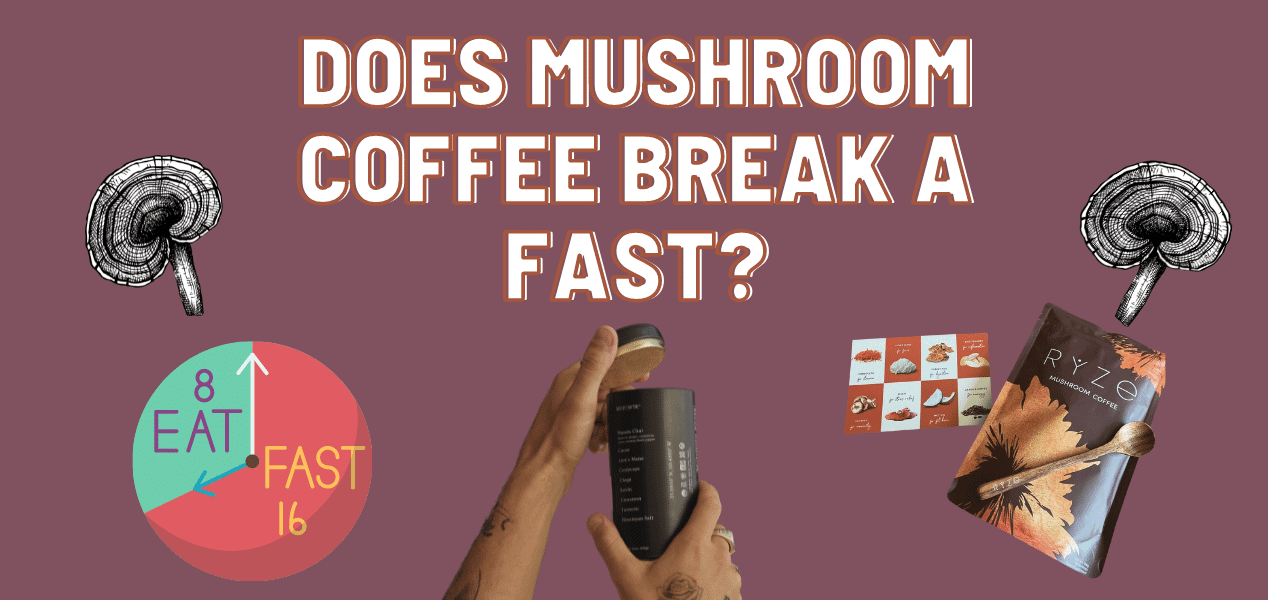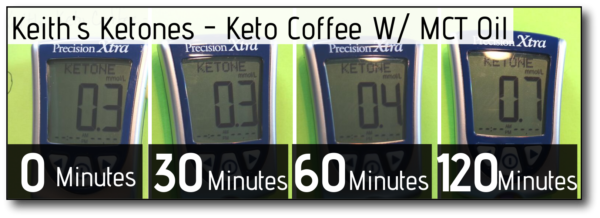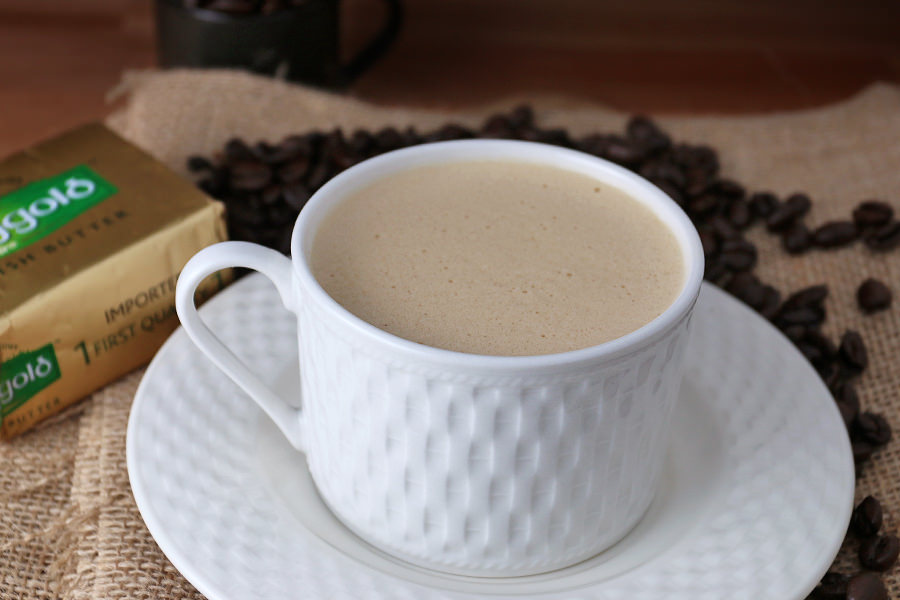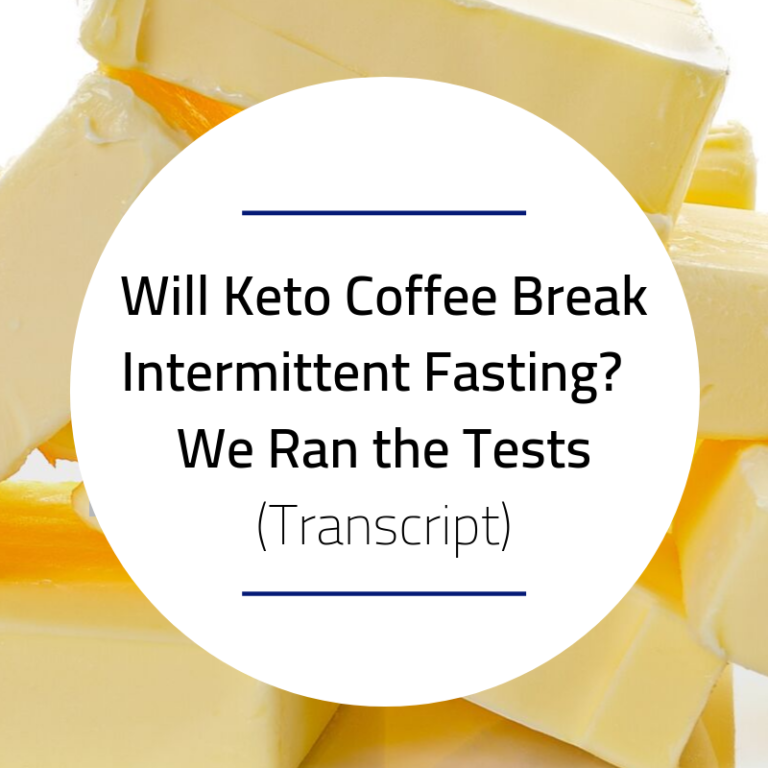Does Keto Coffee Break A Fast

The question hangs heavy in the air of fasting communities: a seemingly innocent cup of keto coffee, a creamy, fat-laden elixir, promises sustained energy and curbed cravings. But does this indulgence derail the very process it intends to support? The answer, as with many aspects of nutrition, isn't a simple yes or no, leading to heated debates among health enthusiasts and intermittent fasting practitioners.
This article delves into the complex interplay between keto coffee and fasting, examining the metabolic effects of its key ingredients – coffee, medium-chain triglycerides (MCTs), and butter or other fats – and considering their impact on the intended benefits of fasting, such as ketosis, autophagy, and cellular repair. We will explore the scientific evidence, weigh expert opinions, and offer a balanced perspective to help you make an informed decision about whether keto coffee fits into your fasting regimen.
Understanding Fasting and Its Goals
Fasting, in its simplest form, is abstaining from food for a specific period. Intermittent fasting (IF) is a popular approach, cycling between periods of eating and voluntary fasting on a regular schedule.
The goals of fasting can range from weight loss and improved insulin sensitivity to enhanced cellular repair and longevity. Many fasters aim to induce ketosis, a metabolic state where the body primarily burns fat for fuel instead of glucose.
The Role of Ketosis
When carbohydrate intake is restricted during fasting, the liver produces ketone bodies, such as beta-hydroxybutyrate (BHB), acetoacetate, and acetone. These ketones serve as an alternative fuel source for the brain and body.
Ketosis is often associated with weight loss, improved mental clarity, and reduced inflammation.
Maintaining a fasted state is crucial for achieving and sustaining ketosis.
Keto Coffee Ingredients and Their Metabolic Impact
Keto coffee typically consists of black coffee blended with MCT oil and a source of fat, such as butter or coconut oil. This concoction is designed to provide energy and satiety without significantly raising blood sugar levels.
The rationale behind keto coffee is that the fat content will promote ketosis, while the coffee provides a stimulating effect.
Coffee's Influence on Fasting
Black coffee, with its negligible calorie count, is generally considered acceptable during fasting. It may even enhance the benefits.
Caffeine, the active ingredient in coffee, can boost metabolism, improve mental focus, and suppress appetite.
However, some individuals may experience increased anxiety or disrupted sleep from caffeine, which could indirectly affect their fasting experience.
MCT Oil: A Ketogenic Powerhouse?
MCT oil is a concentrated source of medium-chain triglycerides, fats that are rapidly absorbed and converted into ketones in the liver.
MCTs can quickly raise blood ketone levels, potentially deepening ketosis during a fast. This is according to studies published in the American Journal of Clinical Nutrition.
However, MCT oil does contain calories, and its consumption could trigger a slight insulin response.
Butter and Other Fats: Sustained Energy or Fasting Foe?
Adding butter, coconut oil, or other fats to keto coffee provides a source of sustained energy and satiety. These fats contribute to the overall calorie content of the drink.
While they may not spike blood sugar as dramatically as carbohydrates, they can still stimulate digestive processes and potentially interrupt autophagy.
Autophagy, a cellular "housekeeping" process, is often cited as a key benefit of fasting, and it may be sensitive to nutrient intake.
The Calorie Threshold: Does It Matter?
A central question in the keto coffee debate revolves around the calorie threshold for breaking a fast. There isn't a universally agreed-upon number.
Some argue that consuming fewer than 50 calories is unlikely to significantly impact the benefits of fasting, while others maintain that any caloric intake constitutes breaking the fast. Registered Dietitian Dr. Sarah Williams states, "The impact is highly individual and depends on your fasting goals."
Keto coffee typically contains between 100 and 300 calories, depending on the amount of fat added.
Expert Opinions and Research Findings
Opinions among health experts vary. Some endorse keto coffee as a valuable tool for managing hunger and enhancing ketosis during intermittent fasting.
Others caution that it may interfere with autophagy and other beneficial fasting processes.
Dr. David Ludwig, a researcher at Harvard Medical School, has noted that while fat intake can promote ketosis, it's crucial to consider the overall metabolic impact and individual responses.
Limited Research on Keto Coffee Specifically
It's important to note that there is limited research specifically investigating the effects of keto coffee on fasting. Much of the information is extrapolated from studies on individual ingredients and fasting protocols.
More research is needed to fully understand the impact of keto coffee on various fasting parameters, such as autophagy, insulin sensitivity, and weight loss.
Weighing the Pros and Cons: A Balanced Perspective
The decision of whether or not to include keto coffee in your fasting routine is a personal one. It depends on your individual goals, tolerance, and metabolic response.
Potential Benefits
Keto coffee may help manage hunger, increase energy levels, and enhance ketosis during fasting. It can also provide a convenient and palatable way to consume healthy fats.
Potential Drawbacks
It may interrupt autophagy, stimulate digestion, and potentially hinder some of the other beneficial effects of fasting. It can also contribute to excessive calorie intake.
Moreover, individuals sensitive to caffeine or fats may experience negative side effects like anxiety, digestive discomfort, or disrupted sleep.
Making an Informed Decision
If you're considering incorporating keto coffee into your fasting regimen, start with a small amount and monitor your body's response.
Pay attention to how it affects your energy levels, hunger, and overall well-being. Consider tracking your ketone levels to see if keto coffee is truly enhancing ketosis.
Consult with a healthcare professional or registered dietitian to get personalized advice based on your individual needs and goals. Listen to your body.
Looking Ahead: The Future of Fasting and Keto Coffee
As research on fasting and ketogenic diets continues to evolve, our understanding of the role of keto coffee will likely become more refined. Future studies may explore the optimal timing, composition, and frequency of keto coffee consumption during fasting protocols.
Until then, a balanced and individualized approach is key. The ultimate answer to whether keto coffee breaks a fast lies in understanding your own body and its unique response to this increasingly popular beverage.








![Does Keto Coffee Break A Fast Does Coconut Oil Break a Fast? [Intermittent Fasting Tips] | Immune](https://i.pinimg.com/originals/3d/e9/2e/3de92ea5b6c8dd4666120fd1a10c3cb3.jpg)









